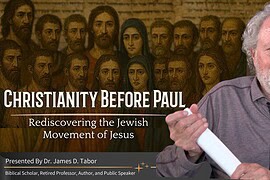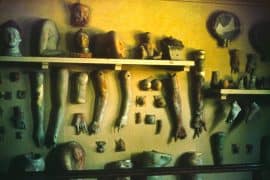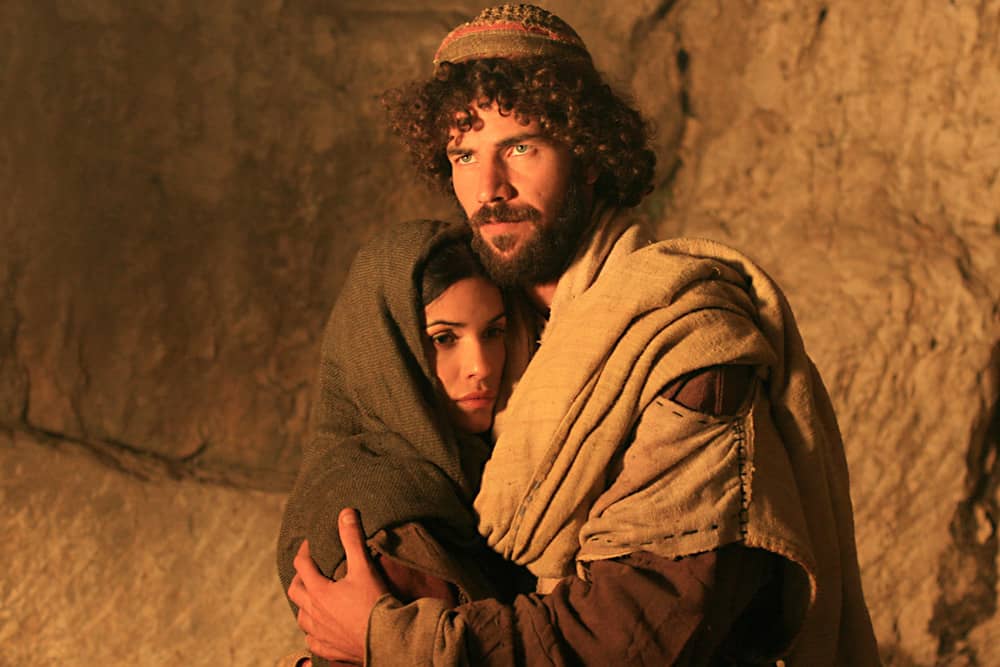I have spent several decades reading and thinking about the whole issue of translation–especially when it comes to translating ancient texts–like the Bible–into English. I majored in Greek in college, taking my first introductory course, using Machen’s New Testament Greek for Beginners, published in 1923 and reprinted many times. I still have my copy purchased in the Fall of 1963–as a Freshman at what was then Abilene Christian College–now University. My teacher was the masterful Robert Lee Johnston, who died in 2014 at age 92. There was no one better. I ended up taking 40 semester hours of Greek. ACC was known in those days for its emphasis on Biblical Languages–and I doubt if there was any better place in the country to learn Greek and Hebrew. Paul Southern, my advanced Greek professor, had studied with A. T. Robertson. Harvard educated Jimmy “Jack” Roberts had to be the most demanding–and entertaining–Hebrew teacher anyone could have ever had. And for first year Hebrew we used Weingreen, Hebrew Grammar–which to this day Dr. John C. Reeves still uses in his “baby Hebrew” course, as he calls it, at Charlotte. I have my original copy of that as well. I ended up triple majoring in Bible, Greek, and History. I have had some of the best language teachers in the country–including William McAllen Green (1897–1979) at Pepperdine, retired Professor of Latin at the University of California, Berkeley.
One of the challenges is how to translate old familiar words–especially theological words–like “Angel” or “Church” or “Atonement”–as well as a host of concepts. My translation of The Book of Genesis, over a decade in the making, was my attempt to work out a method of translating that would allow the “transparency” of the original language to emerge through the English–without being so literal that all sense of meaning was lost. I recommend it to my readers who have not seen it–available via Amazon in paperback, hardcover, and Kindle. I think any Bible reader will find it refreshingly fascinating and the book of Genesis will become a “new” book, even to those most familiar with its contents.
Here I want to try and rehabilitate a bit two words we often use in English–namely “Stoic” and “Cynic,” to the detriment of philosophers like Epictetus, who remains one of the most valuable thinkers of antiquity–with many connections in thought and life-style to both Jesus and Paul–see John Dominic Crossan’s wonderful work, Jesus: A Revolutionary Biography, and his meditations on “Jesus the Cynic Philosopher.” Set in the context of ancient Jewish apocalypticism you have the two main components that lie behind my own understanding of the iconoclastic “Jesus Movement.”
Today “Stoic” means someone with a kind of “grin and bear” it attitude toward life and its vicissitudes, whereas, “Cynic” means someone who is overly skeptical and negative regarding just about anything and everything. Neither of these popular connotations fit the ancient world or thought of Epictetus–the Stoic/Cynic we have the the most from. Stoa simply refers to a “porch” or “steps” from which Zeno, the pioneer of Cynic thought, taught from. Cynic in Greek means a “dog,” and is used to represent the “natural life,” as in Dylan’s wonderful song on Planet Waves–“If Dogs Run Free–Why not We?” For these “dogs” or Cynics, the purpose in life was to life with high virtue in accordance with nature. My favorite Cynic has to be Diogenes of Sinope–not to be confused with Diogenes Laertius–whose “Life of Diogenes” will cause a reader to laugh out loud–even after 2500 years! I commend both to my readers.

Here is a wonderful passage from Epictetus on the “Ideal Cynic” that I use in my classes:
1. One of (Epictetus’) acquaintances who seems to lean toward the Cynic’s calling asked, “What kind of man ought a Cynic be, and what is the basic conception of his vocation?” Epictetus said, “We will look closely at this at leisure. 2. I can tell you this, the man separated from God who takes up so great a calling is hateful to God, and he wishes (for himself) nothing other than public disgrace. 3. For no one in a well-run household comes along and says to himself, `I ought to manage this house.’ If he does, the lord of the house, when he turns and sees him pompously giving orders, will drag him out and squeeze him dry. 4. It is the same way also in this great city (the world). There is also here a Lord of the house who gives orders to each. 5. You are the sun. You are able to circle the heavens, to make years and to nourish and to make the crops grow. You can move the winds and calm them, and to give even warmth to human bodies. Arise, orbit and thus move everything from the greatest to the tiniest. You are a calf. When a lion appears, do what is yours to do. If you do not, you will lament. 6.You are a bull, come and fight. For this is given to you; it fits your being, and you are able to do it. 7. You can lead the army against Ilium; be Agamemnon. You can fight Hector; be Achilles. 8. But if Thersites had come along and assumed command, he would not have got it, or he would have shamed himself before a host of witnesses. 9. So consider your vocation carefully; it is not what it seems to you 10. (who says) `I wear a hair cloak now, and I shall continue to do so. I have a hard bed now, and I shall continue to sleep on it. I shall carry a bag and a staff, and I shall start to wander around and beg from those I meet—and revile them. If I see someone using a depilatory or with a fancy haircut or walking around in scarlet, I will remonstrate with him.’ 11. If you imagine the calling to be like this, get far away from it. Do not approach it; it is not for you. 12. But if your imagination is correct, and you do not consider yourself unworthy, consider the greatness of the calling which you are taking in hand. 13. First, you must completely change everything about you from your current practices, and you must blame neither God nor man. You must obliterate yearnings and turn your tendencies toward moral considerations alone. You must never feel wrath, nor anger, nor envy, nor pity; no little girl should seem pretty to you, nor should a petty reputation, nor a little boy as a lover, nor little sweet cakes. 14. You need to know this: other men have the cover of their walls and houses and the darkness when they make use of these things, and they have many secrets. A man closes the door, stations someone outside the bedroom (and says), “if someone comes, tell him he is gone out, or he is not at leisure.” 15. But the Cynic, opposed to all this, ought to be protected by his own honor; if he does not, he will be shamed naked and in the open. This is his house, his door; this is the guard before his bedroom; this his darkness. 16. He should not want to hide anything of himself—lest, if he does, he should destroy the Cynic, do away with the open man, the free man; he has begun to fear externals; he has begun to have need of his concealment—nor if he wishes, should he be able to do so. Where will he hide himself, or how? 17. If by chance this instructor of the masses, this “professor” be exposed, what must he suffer? 18. Can one who is afraid of all this continue with his whole soul to oversee other men? It cannot be done; it is impossible. 19. First, you must make pure the governing principle of your life, and have this plan: 20. From now on, my mind is my raw material, as wood is to the builder, as leather to the shoemaker. My job is to use my information correctly. 21. My body means nothing to me; its parts are a part of me. 22. Exile? To where can anyone expel me? He cannot send me outside the world. Wherever I go, there is the sun, there the moon, there the stars, dreams, omens, communion with the Gods. 23. Next, after he is thus prepared, the true Cynic cannot allow this to suffice, but he must know that he has been sent as a messenger from Zeus to men to show them about good and evil things, that they have strayed off and are looking in the wrong places for the essence of good and evil. They look where it is not; where it is they have no idea. He must be a spy, as Diogenes was when he was taken off to Phillip after the battle of Chaironeia. Truly the Cynic spies out what is beneficial and what is harmful to men. He must spy accurately and, when he comes back, he must report truthfully. He must not become panic-stricken, so that he identifies as enemies those that are not, nor in any other way should he be troubled or mixed-up about his information.
53. Consider carefully. Know yourself. Ask God. Without God, do nothing. If he thus counsels you, be certain that he wants you to become great, or to receive many beatings. For mixed into the Cynic’s life is this all to sweet refinement; he must be beaten like a donkey, and while he is beaten, he must love the floggers as if he were the brother or father of them all. Not you, however. If someone beats you, you go into the middle of the town and shout, “O Caesar, in your peaceful reign, why do I suffer? Let us go to the proconsul.” But to a Cynic, what is a Caesar or a proconsul, or anyone else other than he who sent him and whom he serves, namely, Zeus? Does he call on anyone except Zeus?
81. Friend, (the Cynic) is the father of all men; he has mankind as sons, womankind as daughters. This is the way he comes to all; thus he cares for all. Or do you think he chastises everyone because he is a meddler? He does this as a father, as a brother and as a servant of Zeus, the Father of us all.
95. …every thought he thinks is as a friend and servant to the Gods, as a sharer in the reign of Zeus. He always has this motto before him: “Lead me on, O Zeus and Destiny!” (Cleanthes), and “if he pleases the Gods, let it be thus” (Plato, Crito, 43D). Why should he not be bold so as to speak openly to his own brothers, to his children, succinctly, to his kin?
More on Diogenes of Sinope to come…









Comments are closed.